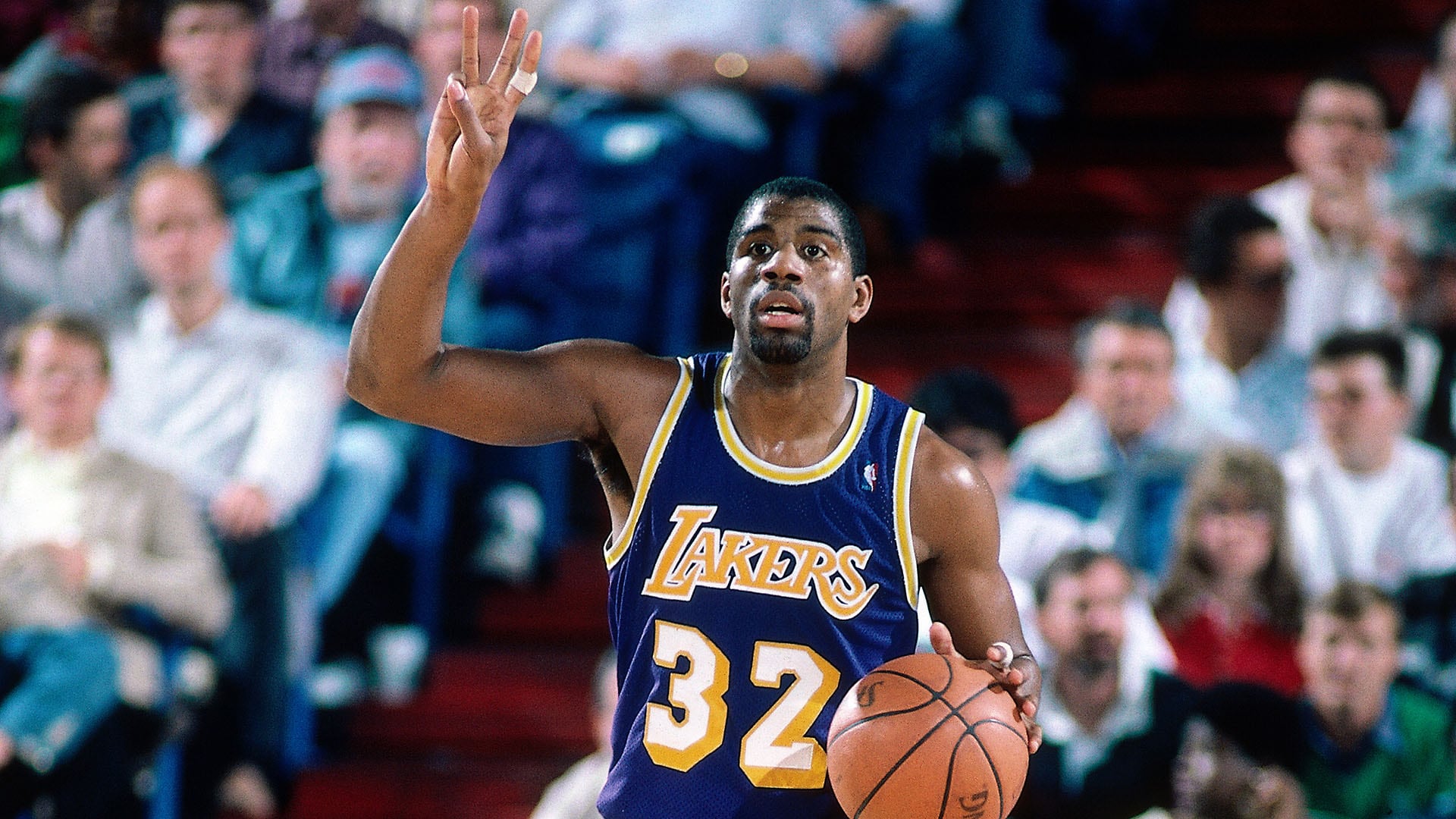
Frustrated by their playoff failure in 1981, the Lakers started the season determined to make a better showing. But an early-season disagreement between coach Paul Westhead and Magic Johnson led to Westhead’s dismissal just 11 games into the season, despite the coach having won 50 games in each of his two seasons at the helm. Johnson, cast as the villain, was actually booed at the Forum, which had previously been unthinkable.
Out of the chaos stepped Pat Riley, the former Laker who had been part of the L.A.’s 1972 championship team. Riley had been brought down by Westhead from the broadcast booth to serve as an assistant coach a year earlier, and was thrust into the top job when Jerry West, then a personnel consultant to the team, declined.
As coach, Riley installed a freewheeling offense and aggressive, trapping defense, and the Lakers responded by winning 57 games. Boston won a league-high 63 games and the Atlantic Division, and Philadelphia and Boston advanced to meet in the Eastern Conference Finals for the third straight year.
Philadelphia went up 3-1 for the second straight year, but Boston again won two games to send it to a seventh game in Boston. This time, Philadelphia triumphed 120-106, and moved on to meet the Lakers in The Finals.
Los Angeles had swept Phoenix and San Antonio to reach The Finals, and had been enduring two-a-day practice sessions in order not to be rusty against Philly. The move paid off as the Lakers won Game 1 by seven points, the closest game of The Finals, and captured the series in six games.
Bob McAdoo, a midseason addition to L.A., was crucial to the team’s title run. Although he won three consecutive league scoring titles as a member of the Buffalo Braves in the 1970s, his teams never got past the East semis. After several injuries and trades, the former All-Star had fallen into the category of many high-scoring players: admired for his point-producing ability but disdained for his team’s lack of playoff success.
The night before Christmas, 1981, the 30-year-old McAdoo was traded to the Lakers. Although the trade received little notice, McAdoo became a key player for Los Angeles, averaging 16.7 ppg in the playoffs as he finally ended years of playoff letdowns.
“This is the happiest moment of my life,” he said in the moments after the Lakers wrapped up the 1982 Finals. “People have said bad things about me during my career, but this makes up for it.”
PLAYOFFS
Eastern Conference first round
Washington defeated New Jersey (2-0)
Philadelphia defeated Atlanta (2-0)
Western Conference first round
Seattle defeated Houston (2-1)
Phoenix defeated Denver (2-1)
Eastern Conference semifinals
Philadelphia defeated Milwaukee (4-2)
Boston defeated Washington (4-1)
Western Conference semifinals
Los Angeles Lakers defeated Phoenix (4-0)
San Antonio defeated Seattle (4-1)
Eastern Conference finals
Philadelphia defeated Boston (4-3)
Western Conference finals
Los Angeles Lakers defeated San Antonio (4-0)
NBA Finals
Los Angeles Lakers defeated Philadelphia (4-2)
SEASON LEADERS
Points — George Gervin, San Antonio Spurs (32.3)
Assists — Johnny Moore, San Antonio Spurs (9.1)
Rebounds — Moses Malone, Houston Rockets (14.7)
Steals — Magic Johnson, Los Angeles Lakers (2.67)
Blocks — George Johnson, San Antonio (3.12)
FG % — Artis Gilmore, Chicago Bulls (65.2)
FT % — Kyle Macy, Phoenix Suns (89.9)
3PT % — Campy Russell, New York Knicks (43.9)
AWARD WINNERS
Most Valuable Player — Moses Malone, Houston Rockets
Rookie of the Year — Buck Williams, New Jersey Nets
Coach of the Year — Gene Shue, Washington Bullets
All-Star Game MVP — Larry Bird, Boston Celtics
Finals MVP — Magic Johnson, Los Angeles Lakers









